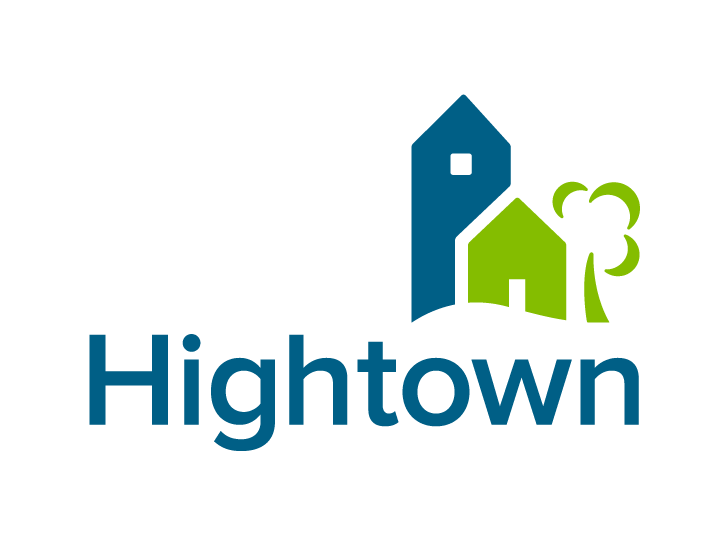To mark No More Week (5-12 March 2023), a national awareness campaign focused on domestic abuse, Hightown’s Housing Team Area Manager Kerry Hames explains the association’s approach to supporting those affected and preventing the homelessness that can often occur as a result.
Why is it important for housing associations like Hightown to have an effective response to domestic abuse?
We know that many victims face homelessness when they flee abusive homes; for example, research from the charity SafeLives revealed that 32% of homeless women said that domestic abuse contributed to their homelessness. The same research showed that over half of domestic abuse victims/survivors need support to help them stay in their homes.
As a founding member of Homes for Cathy, an alliance of housing associations dedicated to ending homelessness, Hightown is committed to meeting the needs of tenants who want to prevent their own potential homelessness, and this includes domestic abuse victims/survivors. Moreover, we have a safeguarding responsibility for all our tenants, so it's important we have effective measures in place to avoid any delays in responding to and supporting those affected.
As a housing association, we’re uniquely placed to identify domestic abuse and support people, due to nature of our relationship with tenants. When we receive reports of domestic abuse incidents, our housing teams pull together so tenants can receive timely and consistent assistance, information and advice. We've also trained our front-line staff to be able to spot the signs of abuse, which is vital as not all tenants come forward to report it themselves.
What training do Hightown staff receive in order to be able to respond to reports of domestic abuse?
We've worked with an Independent Domestic Violence Advisor (IDVA) from the charity Refuge, a role funded by Hertfordshire County Council and the Police and Crime Commissioner, who is co-located at our offices and is responsible for carrying out risk and needs assessments, safety planning and providing short-term support and intervention to victims. The IDVA has organised training sessions for staff to ensure their knowledge of domestic abuse is up to date, and offers advice, guidance and assistance with referrals to the Hertfordshire County Council IDVA service.
At Hightown, we also have a domestic abuse lead housing officer who provides guidance for staff in relation to housing management cases. They are also a domestic abuse champion for the entire organisation and trained in multiple aspects of domestic abuse, including the DASH risk assessment model, MODUS case management software and MARAC. A MARAC is a multi-agency risk assessment conference, which takes place on the highest risk domestic abuse cases. This information is shared with external agencies like local police, health, child protection, housing practitioners, Independent Domestic Violence Advisors (IDVAs), probation and other specialists from the statutory and voluntary sectors.
We recognise that our own staff may experience domestic abuse, so we also have a lead for supporting staff who make a disclosure, as well as offering a domestic abuse e-learning module for managers.
What measures does Hightown take to identify and support domestic abuse victims who do not come forward themselves?
As a landlord, we are well positioned to identify potential cases of domestic abuse in a tenancy, using both the information we hold about that tenancy and our own professional curiosity to identify situations which require a closer look.
For example, we train our staff in our Asset Management team to look out for signs that can be spotted when they are inside a customer’s home, or when receiving reports about repairs. This could include a customer with visible injuries or who is being shouted at by their partner; repeat repairs such as a bathroom lock or bedroom door; or signs of physical damage to the property, such as holes in walls or damage to furniture and appliances. Often it can be a general sense that something isn’t quite right.
This ‘setting the scene’ is not just limited to a customer’s home; we know that domestic abuse victims/survivors are four times more likely to be in rent arrears compared to the general population. After a domestic abuse incident, a victim/survivor is likely to go into arrears and if they are already in arrears, the arrears increase and continue to increase. It can often be disguised, so it’s crucial to listen to what is being said and, again, have that professional curiosity.
We may also identify domestic abuse through reports of anti-social behaviour (ASB) from neighbours. We therefore check all the relevant information (and that of partners) to build a picture of what is happening before approaching customers and we always consider domestic abuse as a factor. We do not treat suspected cases of domestic abuse as ASB as this could penalise the victim/survivor or prevent them from seeking help.
With domestic abuse a major factor in homelessness, particularly among women, how do you support survivors to remain in their home or leave a tenancy?
The reality is that women - and their children - need safe and suitable housing options to escape and recover from violence and abuse. As a housing association, we signpost our customers to sources of guidance and advice, such as SafeLives, The National Centre for Domestic Violence, the National Domestic Abuse Helpline and Women's Aid. We work with external agencies to provide support to customers who want to remain in their homes and, where a customer needs to move, we liaise closely with our local authority partners to overcome any barriers and ensure that the customer is placed in a safe place, for example a refuge, until a move to a more suitable property becomes available. Reciprocal move arrangements with other providers, such as the one Hightown has in place with Buckinghamshire Council, can really help in situations where customers want to re-locate to another area.




